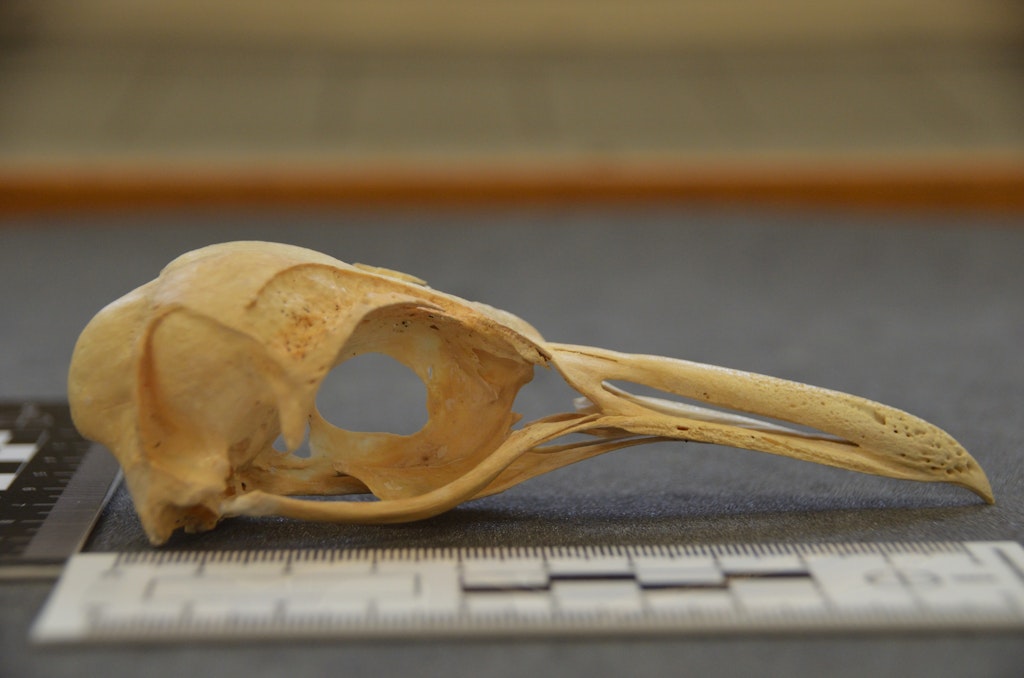I have always been fascinated with the variety of life on the planet and one of the best and most intuitive ways to appreciate it is through the Theory of Evolution.
My background is in Earth Sciences and through Palaeontology I was able to explore the patterns and trends that evolution produces over geological time. More recently, I have started connecting the dots between evolution and conservation, an application with serious repercussions in the current climate emergency.
Ability to adapt
The goal of my research is to better understand water bird evolution in the context of a changing climate. Penguins are highly specialised divers and represent the perfect group to study.
By examining how penguins evolved and how they have adapted morphologically to their environments and diets, we can understand how they might be affected by future changes, and what conservation efforts should be undertaken.

Hidden biodiversity
My recent work found that the gentoo penguin is in fact four separate species, showing that even well-known animals like penguins can be harbouring hidden biodiversity.
I am also interested in whether evolution is reversible in the real world and how this relates to at-risk species. Penguins are ideal subjects in which to study the question as to whether diving within the water birds represents an evolutionary ‘dead-end’: if a species has evolved to dive for food, can it ever adapt to a different feeding strategy? Several penguin species are categorised as at-risk so understanding if new adaptations are possible is of utmost importance.

Problem solving with evolution
There are so many questions that would appear to have simple answers: how many species of birds are there? How many times have birds lost the ability to fly? What is the best shape for a wing underwater? The exciting reality is that there are no simple answers. By using the latest techniques in morphometrics, genomics and simulation, I can start unravelling these long-asked questions and find innovative and surprising solutions.
After my PhD, I hope to continue researching at the intersection of Evolution, Ecology and Global Change Biology through a postdoctoral position.
My EET scholarship has provided me with incredible opportunities to meet researchers, policy makers, charities, and many others who share my appreciation for studying evolution.
More about Josh’s work:
BBC article: Gentoo penguins are four species, not one